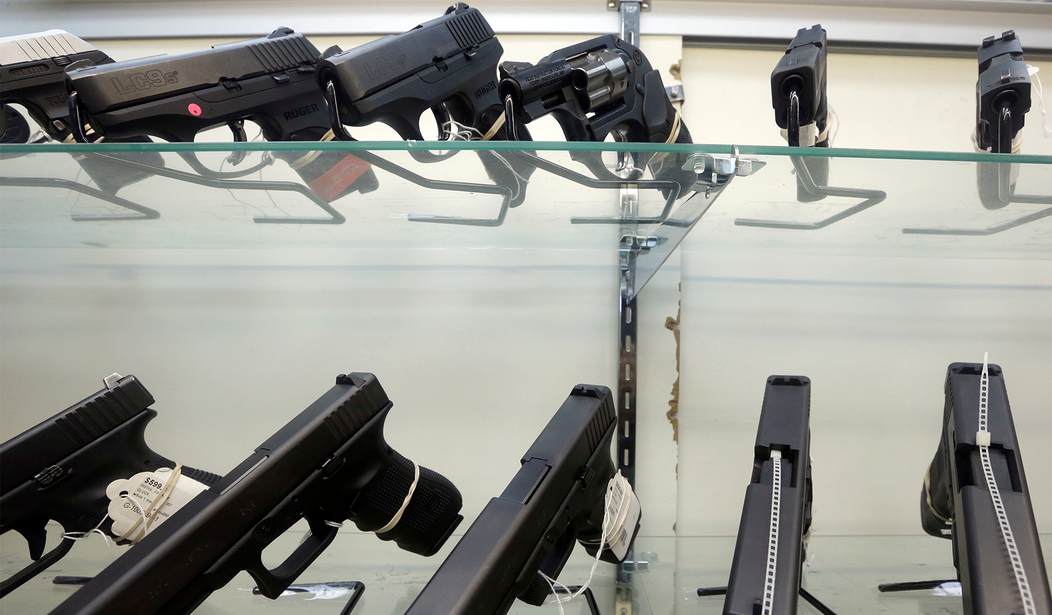We keep being told that more guns equate to more crime. This is a given truth among many people, including the media. They argue that if there are more guns out there, then criminals will have more. Or something like that.
But we keep seeing data points disproving that thesis, and here we go again.
See, the National Shooting Sports Foundation sees things that anti-gunners don't want anyone to look at.
A major development over the past five plus years has been the number of new, first-time gun buyers. It’s been a remarkable shift in demographics of who is buying and training with firearms. No longer can the media ignore reality as the American gun owner is dramatically shifting away from the tired stereotype of “pale, stale and male” gun owners “stockpiling” firearms and towards the most diverse gun-owning population in history.
But in some of America’s largest metropolitan areas, in some of the most antigun cities and states in the country, mayors and governors are chest-thumping over a drop in crime rates. However, their claims fall flat with city dwellers who know better, for two major reasons. First, these gun control mayors and governors ignore the millions of new law-abiding gun owners who have chosen to stand up to criminals and keep their families and homes safe and protect their businesses. Second, many of these major cities are not reporting crime data to the national databases keeping track of such trends.
Governors Fumble
All told, more than 26 million Americans have become law-abiding, first-time gun owners since 2020, with minorities – specifically African American women – responsible for large percentages of those purchases. Many of those buyers hail from antigun states and cities, who became fed up with their elected officials’ failures to keep their communities safe from criminals. After all, the Los Angeles Police Department did send out a press release in 2022 telling city residents to “be a good victim” if they found themselves in danger.
These days, a few of the staunchest gun control governors in the country have recently been on media public relations campaigns making smoke-and-mirrors arguments to promote their efforts to improve safety in their cities. Afterall, many of these states have major cities (New York City, Chicago, Los Angeles) that saw dramatic spikes in crime since 2020 that included riots, looting, fires and criminal misuse of firearms as calls for defunding the police echoed and George Soros-backed soft-on-crime prosecutors came into office.
New York Gov. Kathy Hochul – who remains committed to enacting the strictest gun control measures in the country – recently called attention to “falling crime” in the Empire State.
NSSF's Larry Keane also notes that Gov. JB Pritzker is another example of one who is declaring that they've tackled crime all while ignoring the increase in guns in private hands.
Though he also notes there are issues with crime reporting data, which is fair. There are.
But the overall point, I feel, is still valid. The issues with the data aren't new, and so long as they're consistently wrong in the same way, we can still observe trends.
What we've seen is a lot more guns in law-abiding citizens' hands and the end of "may issue" permitting schemes, which put more guns physically on the streets.
This preceded a drop in violent crime all across the nation.
Now, I'm not going to play the anti-gunners' game where I say definitively that this increase in guns caused the drop in violent crime. Correlation doesn't equal causation, after all, and I don't want to be a hypocrite.
What I will note, though, is that while correlation doesn't equal causation, causation should equal correlation. If guns are the root of violent crime, and more guns mean more crime, then more guns in private hands and on the streets should correlate to an increase in violent crime like homicide.
Yet again, that's not happening.
While they tout their gun control efforts, the fact is that there are still more guns, and there's no corresponding increase in crime, as virtually every anti-gunner claims will happen. That alone disproves their entire thesis.
Violent crime--more specifically, the roots of violent crime--is a far more complex and nuanced subject than the anti-gunners like to claim. They look at guns in a vacuum. They don't look at violence holistically because they literally don't care about crime. They care about guns. If it's a stabbing, they don't care. If someone is beaten to death with a hammer, they don't care.
It's only if someone is shot do they give a damn.
As such, they view data with blinders, and you really just can't do that.
Guns don't cost anyone their lives. They can save them, though.








